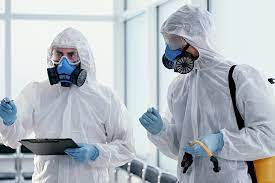Understanding the Role of Biohazard Cleaning Professionals
Biohazard cleaning professionals play a crucial role in handling hazardous materials and ensuring the safety of individuals and environments. Their job extends beyond traditional cleaning services, as they specialize in addressing situations involving biological contaminants, crime scenes, and traumatic events. Check out: nationwide biohazard cleaning
One of the primary responsibilities of biohazard cleaning professionals is to clean and sanitize areas contaminated with hazardous materials. This can include blood, bodily fluids, chemicals, and other biohazards. The goal is not only to restore the affected space to a visually clean state but also to eliminate any potential health risks associated with the contamination.
To become a certified biohazard cleaning professional, individuals must undergo specialized training and acquire relevant qualifications. This training typically covers the proper use of personal protective equipment (PPE), understanding biohazard categories, and learning specific cleaning techniques to minimize the spread of contaminants. Certification ensures that professionals are well-equipped to handle the unique challenges posed by biohazardous situations.

The situations biohazard cleaning professionals face can vary widely, from crime scenes and unattended deaths to hoarding and infectious disease outbreaks. The diversity of their work requires a comprehensive skill set and the ability to adapt to different environments. Moreover, biohazard cleaning professionals must navigate emotionally challenging situations with empathy and professionalism, as they often deal with families and individuals affected by tragedy.
In terms of safety protocols, biohazard cleaning professionals follow strict guidelines to protect themselves and others. This includes the proper disposal of biohazardous waste, thorough decontamination procedures, and adherence to local regulations and industry standards. The importance of these safety measures cannot be overstated, given the potential risks associated with exposure to biohazards.
The demand for biohazard cleaning services has increased in recent years, driven by a growing awareness of the potential health hazards posed by biological contaminants. Additionally, advancements in technology and equipment have enhanced the efficiency and effectiveness of biohazard cleaning processes. This increased demand underscores the critical role these professionals play in maintaining public health and safety.
In conclusion, biohazard cleaning professionals are essential in addressing situations involving hazardous materials and biological contaminants. Their specialized training, adherence to safety protocols, and ability to handle emotionally challenging scenarios make them valuable contributors to public health and safety.
